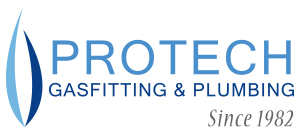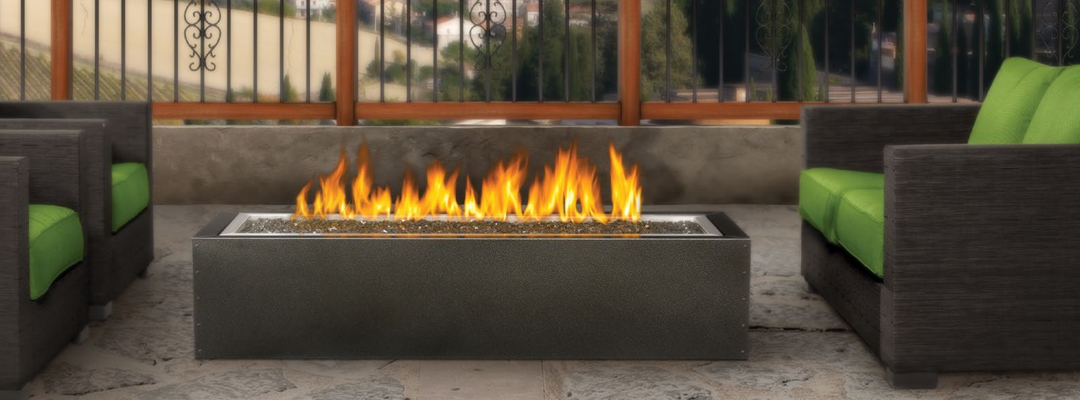
FAQs
Here you will find many answers to questions you may have
Also there is important safety information
If you have any questions please contact us by phone or on our contact form
Do I need a gas permit to run a gas line in Calgary?
All gas lines or any installation of a gas appliance in Calgary requires a gas permit to be taken out.
There are certain exceptions for a straight replacement of a furnace, water heater or gas fireplace caused by the big flood we recently had in Calgary that may not require a permit.
We look after the permit application and inspection process for you.
In Calgary a homeowner cannot take out a gas permit. It can only be taken out by a master gasfitter.
The gasfitter must have 6-7 years experience to become a master gasfitter.
After the job is completed an Inspector will come out to look at the installation. They come to look at all gasfitting jobs.
This shows you that the contractor did take out a permit as the inspector only will come out to a job if there is a gas permit on it.
In Calgary the inspector can usually come out the following business day after the installation.
Out of town the different towns and municipalities have different rules and inspection authorities.
We look after all the permits and information regarding inspections for you.
Our basic charge usually includes the cost of the permit.
If there is no gas permit and inspection on the job your homeowners insurance may not cover you if there is any kind of problem.
If you try to sell your home in the future, and a home inspector comes in to look at your home, they will look at any gas fireplaces, heaters, etc. to see if they were permitted and inspected.
It may be impossible to find a contractor to come in after the fact to take out a gas permit for someone else’s installation.
This could possibly cause the sale of your home to fall through.
We often get calls regarding this situation but are reluctant to take out a permit for work we didn’t do as we only want to be responsible for our own workmanship.
One company I called said we only need a gas permit if the gas line is more than 20 feet long.
In Calgary, all gas lines need a permit even if it means installing a tee on your gas meter.
The confusion to some is that if the gas line is over 20 feet long the inspector requires an air test to on the gas line when they come to look at it.
This requires a second trip for us as we have to come out after inspection to remove the air test.
Calgary City inspectors still come out to look at all gas lines even if they are just a tee on your gas meter or 2 feet of gas line.
Just because a gas line is short it doesn’t mean there might not be something done incorrectly.
We have seen a tee installed on the wrong side of the gas meter.
We once were called in to fix a gas line done by others that was only 20 feet long and had 17 failing infractions called by the city inspector.
If you have any questions or concerns regarding gas permits and inspections you can call, in Calgary, 311 and then ask to speak to a senior gas inspector.
Out of town, you can call your city, town or municipality planning department.
We have an excellent reputation with the City inspectors. Inspectors look at every companies workmanship.
Feel free to call any of the 28 city gas inspector or supervisors regarding Protech Plumbing’s workmanship.
We pull over 700 gas permits per year in Calgary.
Does a gas fireplace or a heater need a permit in Calgary?
All gas appliances require a gas permit to be installed in Calgary and towns and municipalities around Calgary. This is very important that an inspector comes out and looks at the installation before the drywall stage.
If a unit is not vented properly it could lead to carbon monoxide poisoning.
As of May 2008, a battery operated or hard wired carbon monoxide detector must be installed within 5 meters of any bedroom in the home.
Proper clearances to combustibles must be maintained so as not to cause a fire. Gas lines must be protected from potential screws puncturing and causing a leak.
There must be a readily accessible installed shut off valve on the gas line to the unit.
The gas line must be sized properly to handle the gas load and also the gas load on the house needs to be checked to make sure that the main gas line can now handle the load with the increased BTU’s and increased length to the gas line.
For example, in a home with an existing 50 foot gas line, a 1” main is good for 374,000 BTU’s.
If you run an additional 20 feet to a fireplace, BBQ, etc. this reduces the load to 312,000 BTU’s.
This is before allowing the extra load for the fireplace or BBQ.
If the fireplace is 30,000 BTU’s the house main is now only good for 282,000 BTU’s.
Many newer homes only have a ¾” main running to the furnace room.
This may mean any new gas line may have to be run directly back to the gas meter.
This is why it is very important to get someone who knows what they are doing and how to properly size the gas line.
All gas appliances must be rated for high altitude in Calgary. They must all have proper CSA, ULC, CGA approvals.
All holes to outside must be sealed properly including high temperature silicone where needed. All vents on the outside must have proper clearances from air intakes, ground clearances, window clearances, gas meter clearances as well as being protected from possible damage to the vent or to any people getting burned or banging their head on the vent.
The inspector looks at all of the above requirements.
They will also look for any instance of poor workmanship.
This assures you that your unit is safe and you will not have any issues with your insurance company or with any home inspectors if you try to sell your home.
In addition we also carry $5,000,000 liability insurance to cover you.
We have never made a claim in 31 years of business but we do have it in place to protect you.
My neighbor has a friend who knows someone who knows how to install my gas fireplace and gas line. If I can save a couple of bucks is there any reason I should not get this person to do the job?
You could but just make sure you check a few things out first.
- Is he taking out a gas permit for the job and will he be getting it inspected? -very important
- Will your house insurance cover you if he causes an explosion or carbon monoxide poisoning to someone?
- If he is injured on the job and is not covered by workmans compensation you could possibly be sued
- if he cuts into an electrical line or water line and causes thousands of dollars of damage does he have liability insurance to cover you?
- Does he have very much experience installing gas fireplaces? There are a lot of special requirements to installling a gas fireplace.
Keep in mind some people think that because they may have helped out installing a gas line or a fireplace for a few hours suddenly they are experts .
There are some very serious consequences that can happen with natural gas and carbon monoxide if installations are not done properly.
We would never send someone to your home to install a gas line or any gas appliance unless they had 4500 hours of work expeience and going to school once a year for three years to recieve training. Trust me they do know a lot more than your do-it -yourself type of neighbour or friend. We may have an apprentice in your home but only if under direct supervision of a first class journeyman gasfitter.
We have experience in over 12,000 gas fireplaces.
When I was down in the USA I saw vent free gas fireplaces that do not require any venting. Could you install this fireplace in our home for us?
In Alberta vent free gas appliances are not approved in any home. No gas inspector will approve such an installation.
Never mind the pollutants that these put in your home they also add a huge amount of humidity to your home.
With our cold climate this is too much humidity and can cause potential mould issues and moisture damage.
What does your basic gas charge include?
Our basic gas charge includes
- purchase and obtaining a City of Calgary gas permit
- coming to your home
- installing tee and shut off on the main or gas meter
- shutting off your gas and relighting all your pilots after tee is installed
- shut off at appliance or BBQ location and required fittings to connect your appliance
- on a gas range it includes installation of anti-tip bracket
- electronically checking existing gas lines for leaks
- checking for any potential chimney hazards or incorrectly installed appliances or existing gas lines
In addition we charge on a per foot basis between the gas main and the appliance.
This charge includes labor, fittings, hangers, valves, pipe etc.
It also covers our overhead-insurance, WCB, vehicles, etc.
Our prices are very competitive. You know exactly what your job will cost before we proceed or you send us on our way.
If you are paying by the hour you will not know what the final cost will be.
We can almost guarantee it will always be more expensive than us. We have seen prices for gas lines triple what we charge.
Someone charging by the hour usually takes a lot longer to do a job. We are very quick and efficient.
Just because a job gets done quickly, it doesn’t have to mean that it is rushed.
Usually a job taking a long time to get completed is due more to lack of experience and being disorganized.
After doing 15,000 gas lines you learn a few tips and tricks to get the job done properly and quickly.
Almost all of our pipe is pre-threaded off site so we don’t have a big, ugly, oily, noisy, circuit blowing, messy threading machine set up on your premises. All of our outdoor piping is pre painted with primer prior to installation.
We do not require any money up front before starting the job.
How deep does my underground gas line to my garage need to be?
It is best to have your gas line 18-24” deep. You may run an electrical conduit in the same ditch.
You no longer need a pressure treated 2 x 6 in between the gas and electrical.
The gas line must be air tested and inspected prior to backfilling.
A friend told me that a propane BBQ is hotter than a natural gas BBQ. Wouldn’t it be better to go with the hotter BBQ?
A 50,000 BTU Propane BBQ puts out the same amount of heat as a 50,000 BTU natural gas BBQ.conversion.
Where your friend is confused is that yes propane gas is hotter than natural gas but a natural gas bbq has larger orfices engineered to give out the same amount of heat as the equivalent propane bbq would give out.
If I buy a hose and a barbecue quick connect can I just hook my propane BBQ up to natural gas?
No. You would get a very smalll flame and very little heat as the burner orfices are very much smaller in a propane BBQ.
These orfices have to be replaced or drilled out to the proper size.
Some BBQ manufacturers want the whole manifold changed as some of the burner controls valves may have too small of holes for the manifold to provide enough natural gas to the burner.
It is usually better to just buy a natural gas BBQ.
Unless you have an expensive propane bbq, by the time you buy a hose, male and female quick connect and the labor to change the orfices it would be better to put this cost towards a new BBQ that already has these features.
Important- If you have an existing BBQ Quick Connect on your gas line and it is facing up, this must be changed immediately.
All Quick Connects must be horizontal or facing down.
If it is facing up water can collect in it and possibly freeze. This could split the quick connect causing a leak.
If it is facing up this also tells you it was done either by a homeowner or handyman who shouldn’t be doing this type of installation.
What advantages is there to a natural gas BBQ over a propane BBQ?
Natural Gas is a way cheaper than the cost of refilling propane bottles.
Propane is heavier than air so it can sometimes pool or collect on the bottom of your bbq causing the potential for a major flare up, explosion or fire.
Natural Gas is lighter than air so any leaks and the gas rises up into the air, making it safer.
Disconnecting and reconnecting your propane bbq to the bottle all the time leaves an opportunity for leaks if not done properly.
On natural gas you just plug it into a quick connect which, unless it is defective, never leaks.
Transporting your propane back and forth to the refilling station leaves lots of potential for accidents.
Most importantly you never have to worry about running out of fuel in the middle of cooking and you have hungry friends and family waiting to eat.
How safe is natural Gas?
Natural gas is a very safe and reliable heat source. That is if it is installed, tested and inspected properly.
Almost every single serious problem we have ever heard of in Calgary was caused by someone who should have never touched the gas line.
If any gas line is disconnected the valve must be shut off and also a cap or plug must be put in the line.
A few accidents over the years have been as a result of when someone is moving they, or their mover disconnects their gas dryer at the same time the gas to the house happens to be shut off.
They don’t close the valve and cap the line so when the gas goes back on the gas flows through a wide open pipe.
If you get a gasfitter to disconnect the line this would never happen.
Generally if you have a proper licensed gas fitter do the work in your home you will be totally safe.
What should I do if I smell gas or have a gas leak?
Mercaptan, the added odorant to natural gas can be smelled at very low concentrations. If you smell gas, leave the area or your home. Do not touch any electrical switches or use your phone in the area you think the leak may be.
Just shutting off a light, or using your phone can cause a spark which could be enough to ignite the natural gas.
In most cases the leak won’t be enough to cause an explosion but better safe than sorry.
You should either call ATCO emergency number 1-800-511-3447 or call a plumber or gasfitter out to find the cause of the leak and to evaluate how serious it is and to have the problem corrected.
If you are in your furnace room it can be quite normal to get a small gas smell when your furnace or water heater fires up, but if it is constant even when the appliances are not firing it should be checked.
If we put a gas fireplace in our home will it add a lot to our gas bill?
If you are heating an area that you never heated before it will cost a little more.
Most gas fireplaces are about 80% efficient and are low BTU’s so they use very little gas.
In many homes the gas bill is reduced with the addtion of a gas fireplace.
In a home with a family room that the family spends a lot of time in, they have to turn the furnace up to keep the room warm
This heats up the whole house and sometimes makes the upstairs bedrooms too warm
If you turn your furnace down and just heat the family room with your firplace you will see your gas bills drop.
Unless you have a very high efficient furnace your fireplace is probably more efficient than your furnace, so any heat that you put in your home with your gas fireplace will be cheaper than your furnace.
Which is better for a gas appliance, a normal chimney or a direct vent?
If possible, it is almost always better to put a direct vent appliance in.
A direct vent appliance is sealed to the atmosphere in your home so there is no chance of carbon monoxide poisoning due to a downdraft in your chimney.
Also when rating the efficiency of a burner it is not taken into account where the combustion air comes from.
A direct vent gets its combustion air from outside so you are not usng air you already paid to heat for combustion air.
For every 1000 BTU’s your appliance uses it requires 10 cubic feet of air for combustion. So a 90,000 BTU furnace needs 900 cubic feet of air, that you have already paid to heat, for combustion to burn the gas.
It saddens us when we see so many times a high efficient furnace installed that has the exhaust to the outside of the home but the installer didn’t even bother to run the combustion air pipe to the outside.
You have paid for a high efficient furnace and it isn’t really that efficient because it wasn’t installed the way it was designed, all because the installer saved the cost of a few feet of plastic piping. If a contractor is having the installation inspected they can no longer get away with not running the combustion air Piping.
The gas code now requires it and the Inspectors are now enforcing this.
My basement ceiling is all drywalled in, will I still be able to run a gas line for a bqq, range, or fireplace?
There is most likely a way to get the line in.
We have done over 15,000 gas lines so we have learned a few tricks on fishing lines through ceilings.
We have developed special tools to help us fish lines through tight spots.
Sometimes we have even had inspectors comment to our customers that they did not know how we manged to get the gas line in.
Also we can run your gas line on the outside of your house along the foundation.
We paint the pipe with primer and we run it very neatly, tidy and as inconspicuous as possible.
Is it very difficult to replace my electric range with a gas range?
No, it just requires us to run a gas lline to your range.
We also install an anti tip bracket on your range.
This is to stop the potential of the range tipping if a child has the oven door down and tries climbing up to look at something on the stove top.
This prevents the range tipping and a boiling pot or hot pan coming down and burning or seriously injuring the child.
Also you should check your range clearances to your cupboards.
We usually don’t have a problem with the cabinet directly above the stove.
This requires 30″ to where the top of your range hood or microwave/range hood connects, or to the bottom of the cabinet if there is no range hood.
We we have the most clearance issues is the upper cabinets to the left and the right of the stove.
This requires 18″ from the counter top to the bottom of the upper cabinet to any combustibles.
If you have a lighting vallance hanging below the cabinet this must also be 18″ above the counter top.
If you look under the Gas Range Information tab on this website there is a diagram showing the proper clearances.
If you do not have this clearance we may have to have some custom built metal protection plates made.
Our Products & Services
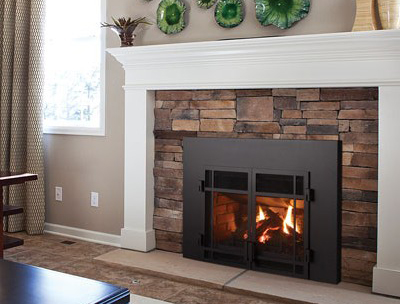
Fireplaces - The last 20 years have seen many changes in fireplace styles, efficiency. We carry a good selection of gas fireplaces and inserts which are made to install into existing wood fireplaces. Click Here for Details.
Privacy Policy Copyright © 2017 Protech Plumbing
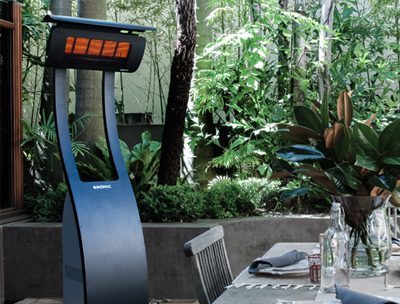
Heaters for the Garage and Patio - Reclaim your garage and patio/deck from the cold with one of our heater options. Easy to add to any space. Click here for Garage Heaters Click here for Patio Heaters
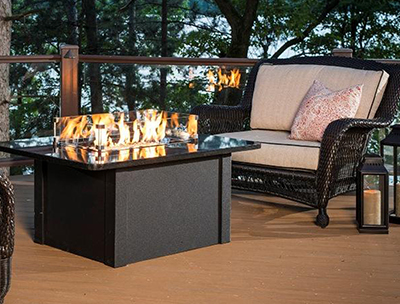
Outdoor Living - Turn your yard into another living space with a new gas fire table, or outdoor fireplace. We can run a new line cleanly and quickly to suit your needs. Click here for details.
